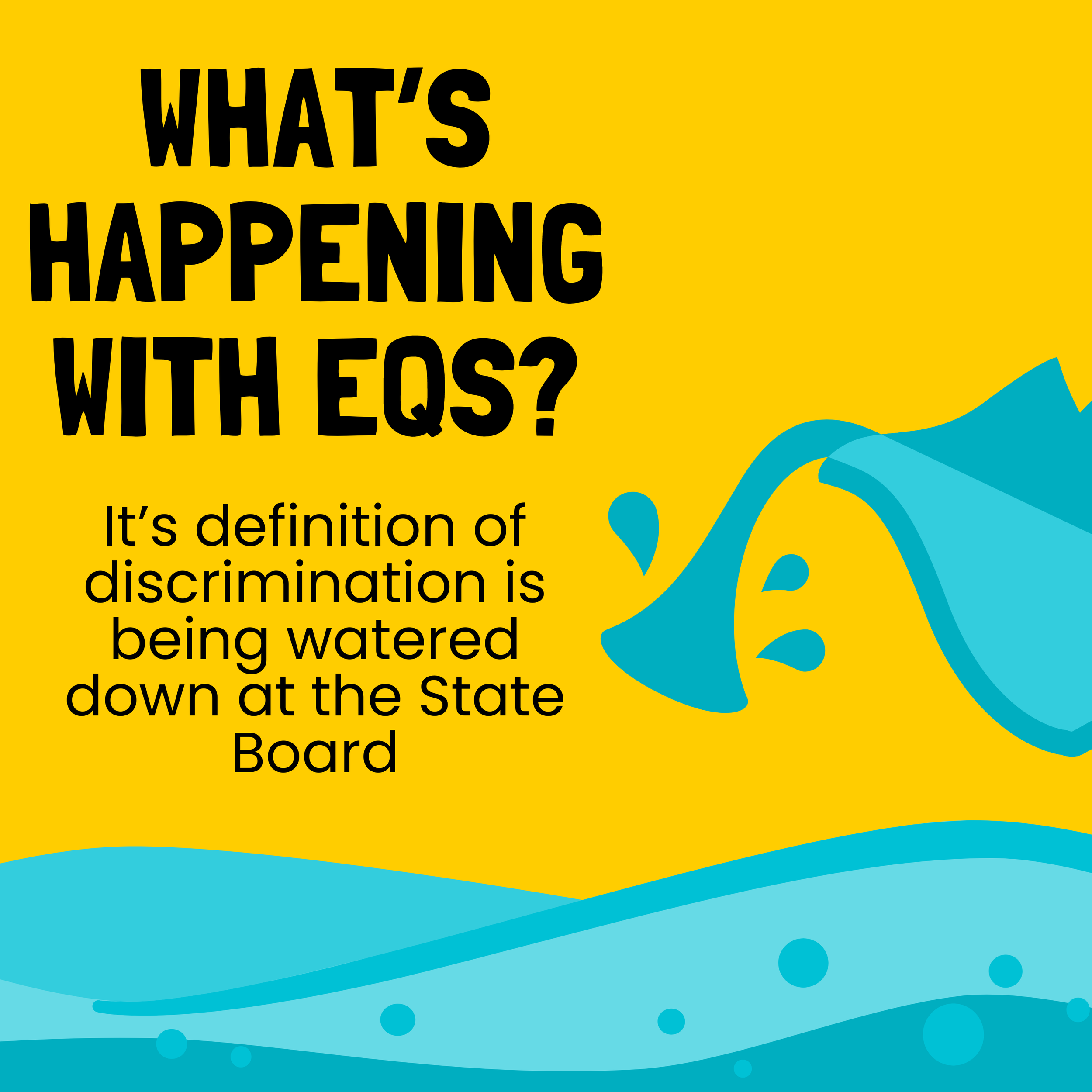Education Quality Standards Update
What are the updated inclusive Educational Quality Standards?
In 2019 a law called Act 1 was passed that created a diverse state Working Group to review our state Educational Quality Standards to ensure they were inclusive, equitable, and representative of all students. The Vermont Education Quality Standards are a broad set of standards about what we believe schools should be and how they should serve students. In the summer of 2022 the Act 1 Working Group completed their revised version of the EQS standards. You can see the newly revised EQS standards here and a plain language version here.
Examples of important changes these updated standards make:
Provide students with high-quality, evidence-based reading instruction in the early grades
Collect the data that shows the disproportional representation in our school programs such as suspension and detentions, special education, or advanced placement courses and how they affect our marginalized youth.
Provide health services that are respectful to students’ lived experiences as LGBTQIA+ young people
Providing learning experiences designed for neurodiversity that include multiple ways for students to access learning
Provide multilingual students programs and accommodations that make sure multilingual students have access to grade-level learning so they can move through the grades and graduate
Create learning environments where students can explore ethnic, cultural, and racial perspectives and issues within and beyond the classroom
Vermont State Board of Education Update
While the EQS passed the initial phase of the state board in the spring of 2023, it is now in the rulemaking process. During the rulemaking process the EQS subcommittee was working to ensure that the independent school rules (Rule 2200) mirrors and includes the EQS updates. In Vermont many students are funded through public voucher money to attend independent schools so these schools have to follow public rules. During this process, the lawyer hired to review the independent school rules challenged the updated definition of discrimination and asked to not include specific protected classes for fear that schools might get sued. This initially proposed discrimination definition was agreed upon by the full Act 1 Working group and passed the initial 8 months of public comment at the VT State Board, why change it now for private schools?
Now the VT State Board of Education is watering down the definition of discrimination to exclude discrimination based on socioeconomic class. We say keep the definition of discrimination inclusive to protect all students!
Actions you can take!
We need to speak up about these points:
Keep the definition of discrimination as it was initially voted by the state board. This definition creates more clarity and also includes a bigger class of students. For example, the new definition includes caste and socioeconomic status. This language would ensure that students from low income backgrounds can access all services at school and also protect them from being bullied about their socioeconomic status.
In 2022, Thirty-seven qualified as free and reduced lunch in Vermont. Keeping the inclusive definition of discrimination ensures these students have access to school programs like field trips and proficiency based learning opportunities.
Watering down the definition of discrimination protects institutions over students. Independent schools want to be free to discriminate against specific groups of students without legal consequence, let’s protect students not institutions.
Don’t water down the original inclusive Educational Quality Standards definition of discrimination to lower the standards for public schools.
90,000 students go to public schools as opposed to 10,000 attending independent schools. We should bring the standards up for independent schools to meet the expectations of public schools.
Now that EQS has almost passed the State Board, we urge the State Board to take up the Vermont Ethnic Studies Framework next (the IRIS framework).
1) Email the VT State Board of Education
Sample State Board of Education Email Template
State Board of Education emails:
Mohamed.Diop@vermont.gov, Grey.Fearon@partner.vermont.gov, Kimberly.G.Gleason@vermont.gov, Tammy.Kolbe@vermont.gov, Lyle.Jepson@vermont.gov, Tom.Lovett@vermont.gov, Jennifer.Ofarrell@vermont.gov, Jennifer.Samuelson@vermont.gov, Richard.Werner@vermont.gov, Aaliyah.Wilburn@partner.vermont.gov
2) Speak out at the VT State Board of Education
March 20, 2024, 8:30 a.m. - 4:30 p.m. - info here ( specific public comment time will be announced here)
3) Write a letter to the editor
Connect with alyssa.edjvt@gmail.com for support doing this
4) Help implement the Inclusive Educational Quality Standards in your school!
This fall and winter we had 60 amazing educators participate in a course to learn how to apply the new EQS Teaching Practices. This course is called Applying Inclusive and Equitable Teaching Practices. Now we want to partner with school districts and schools to bring this PD (Professional Development) curriculum to their district/school this fall. We are hoping to offer a train-the-trainer model at no or low cost so district PD leaders can get trained up to help educators in their district/school shift their practice.
If your school or district is interested in bringing this PD curriculum to your school or wants to learn more about this project, please fill out this brief form so we can be in touch.


